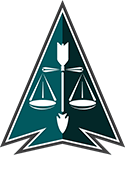National American Indian Court Judges Association
National American Indian Court Judges Association
Judicial Conduct and Code of Ethics
Tribal court judges should not practice law in their own courts, or, in any court subject to the appellate process in which he or she serves.
A judge should encourage a separation between the judicial branch and other branches of tribal government.
A judge should not participate in legislative or executive decision making except where it is permitted by the tribe.
Special care needs to be taken when a judge sits on a tribal council. The appearance or possibility of conflict of interest needs to be avoided.
A judge should not participate in cases involving immediate family members, in cases involving someone with whom the judge has a strong personal relationship, or in cases where the judge has a significant, direct, financial, political, or other personal interest.
A judge should discuss cases and court business only in the presence of all parties.
A judge has a responsibility to uphold confidentiality and should never discuss a case with outside parties or use confidential information acquired in the course of their official duties to further their personal interests.
A judge should be aware that their conduct has a direct bearing on public attitude toward their court and as such, should conduct themselves appropriately.

